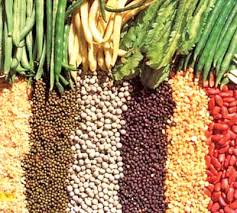The National Agricultural Seeds Council (NASC), says it is getting purer seeds due to the technological innovations of the Bill and Melinda Gates Foundation (BMGF) funded BASICS project for cassava in Nigeria.
BASICS is the acronym for Building a Sustainable, Integrated Seed System for Cassava.
Dr Ishiak Khalid, the Director of Seed Certification and Quality Control of the NASC made this known in an interview on Friday in Abuja.
Khalid said that one of the innovations put in place by the BASICS project was a seed production system called Semi- Autotrophic Hydroponics (SAH).
“This system provides for massive multiplication of seeds within the lab and the seeds are coming from tissue culture which had already been cleaned.
“With this type of innovations, we are now getting purer breeder and foundation seeds,’’ he said.
According to the director, before BASICS was initiated, there was an earlier project by the foundation anchored by Catholic Relief Service (CRS), called Sustainable Cassava Seed System in Nigeria.
He said that the project was into quality control, certification and development of standards only for certified and foundation seeds.
“But today with BASICS, we are in the whole classes, even the standards we earlier set for foundation and certified seeds in the earlier project will no longer hold.
“This is because standards are improved with improved technologies and improved quality.
“Therefore, the standards we earlier put in place will no longer be tenable since we are having purer seeds now courtesy of the BASICS innovations,’’ Khalid said.
He said that these changing standards would facilitate their international seed trade because no buyer would like to go for a standard that tolerates disease, and this was a good credit to BASICS.
He that the BASICS project was aimed at developing the cassava seed system to guarantee quality cassava cottons, which nobody seemed to care about.
He said that cassava cottons remained untreated in the past and prone to cassava disease.
“If you look at cassava in the past, you will see that the leaves were variegated because generally, they are mosaic since no one bothered.
“Research realising this challenge, decided to go into breeding in order to come up with varieties that will be tolerant to these diseases,’’ the director said.
He said that with the arrival of BASICS, the need arose to sanitise the system in agreement with the national seed laws which stated that all seeds must undergo certification processes.
“This was to ensure that the minimum quality standard is attained,’’ Khalid said.
He said that as the project progressed, the idea of seed tracking came up was to ensure that seeds were monitored from production stage to marketing.
“The council later introduced the cassava seed tracker, developed and worked on it and today, the cassava seed tracker system has given birth to a bigger one which is the national seed tracker.
“This is a platform, a web using the electronic system which accommodates the producer, the regulator, even the buyer,’’ he said.
He said that after setting the tracker on cassava, the council with its partners realised that this could be applicable to other crops due to the need for traceability.
“Together with the designer of the tracker from the International Institute of Tropical Agriculture (IITA), we found out they could track inferior and poor quality seeds
“Today, we have already lunched the national seed tracker and all other crops are now to be certified on the same platform,’’ he said.
He said that the project, which actually concentrated on mosaic virus, also touched on seed health and today, the foundation has a standard and state of the art laboratory for molecular testing.
Khalid said that the Federal Government also supported by providing more protected tablets, which the staff use in the field, replacing the report booklets, which could be easily destroyed.
He said the BASICS project would last for four years and it was in the fourth year now and by March 2020, the project would be rounded off. (NAN)


